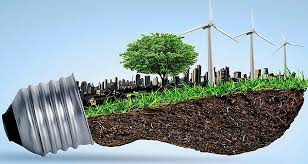What is a Green Energy Tariff?

Landscaping Your Garden for a Fall Leaf-Filled Haven: Practical Tips and Creative Ideas
July 3, 2024
Why a Business Coach is an Asset to Your Business
July 23, 2024A green energy tariff is a plan offered by energy suppliers that promises to match some or all of your electricity usage with renewable energy. These tariffs are designed for customers who want to support sustainable energy sources such as wind, solar or hydroelectric power. However, it’s crucial to understand the details behind these tariffs to ensure you are genuinely contributing to a greener planet.
Green energy tariffs have become increasingly popular in the UK, with a significant rise in adoption over recent years. According to the BBC, many “100% renewable” electricity tariffs may still involve energy generated from fossil fuels, which is then offset for a small price.
This practice, often termed “greenwashing,” can mislead consumers into believing they are supporting entirely renewable energy when, in reality, they might not be.
How Green Are Green Energy Tariffs?
The green credentials of these tariffs can vary significantly. Some suppliers genuinely provide renewable energy, while others only partially do so. To understand the authenticity of a green energy tariff, it is essential to read the small print.
For instance, certain suppliers may purchase Renewable Energy Guarantee of Origin (REGO) certificates separately from the electricity itself. This allows them to market their tariffs as “100% renewable” without necessarily investing in new renewable energy sources.
Consumers can find greener options by exploring new technologies. For example, air source heat pumps Cheltenham can reduce your carbon footprint by efficiently heating your home using renewable energy.
Why Choose a Green Energy Tariff?
Opting for a green energy tariff is a positive thing for our environment. It supports the broader transition to renewable energy by increasing demand. This demand encourages more investment in renewable infrastructure and ultimately, helps consumers to support
sustainable energy sources, such as air source heat pumps Cheltenham.
So while green energy tariffs offer a promising way to support renewable energy, it is vital to scrutinise the details to avoid falling prey to greenwashing. By making informed choices, you can contribute to a sustainable future and ensure that your energy consumption genuinely supports environmental goals.





